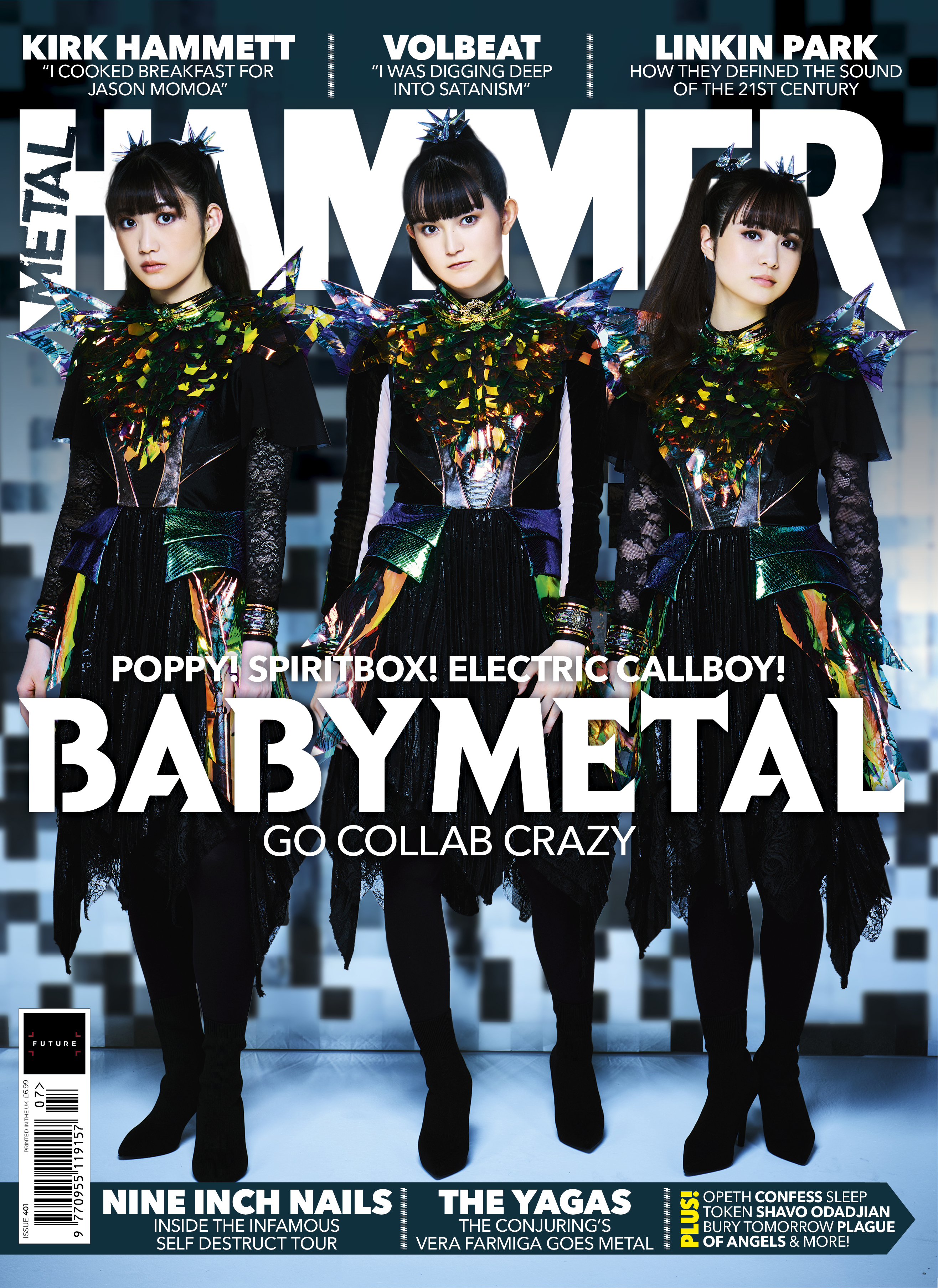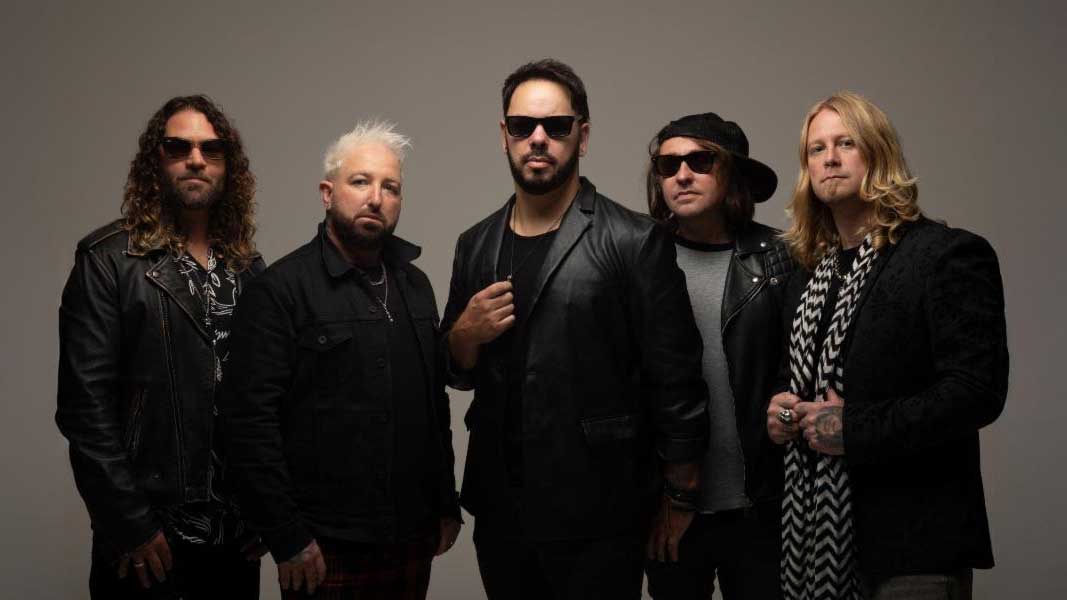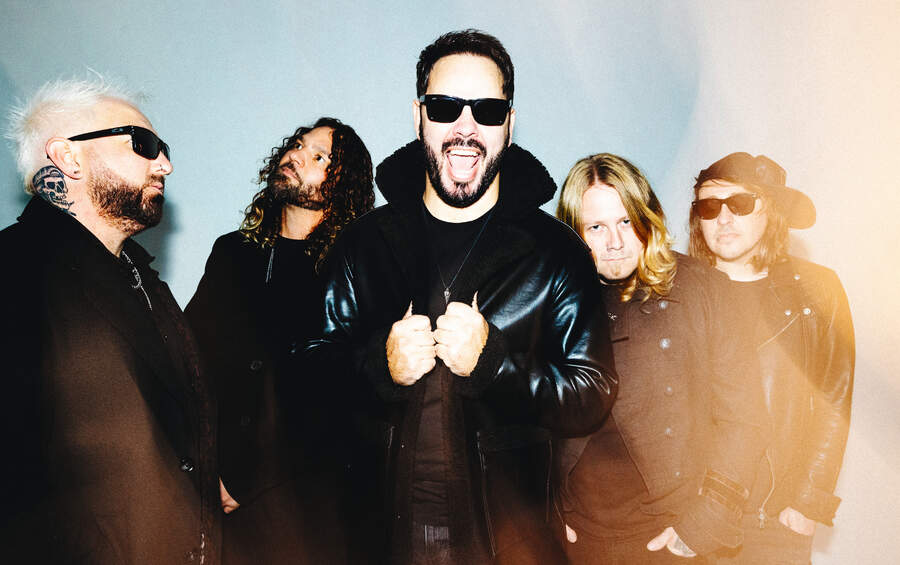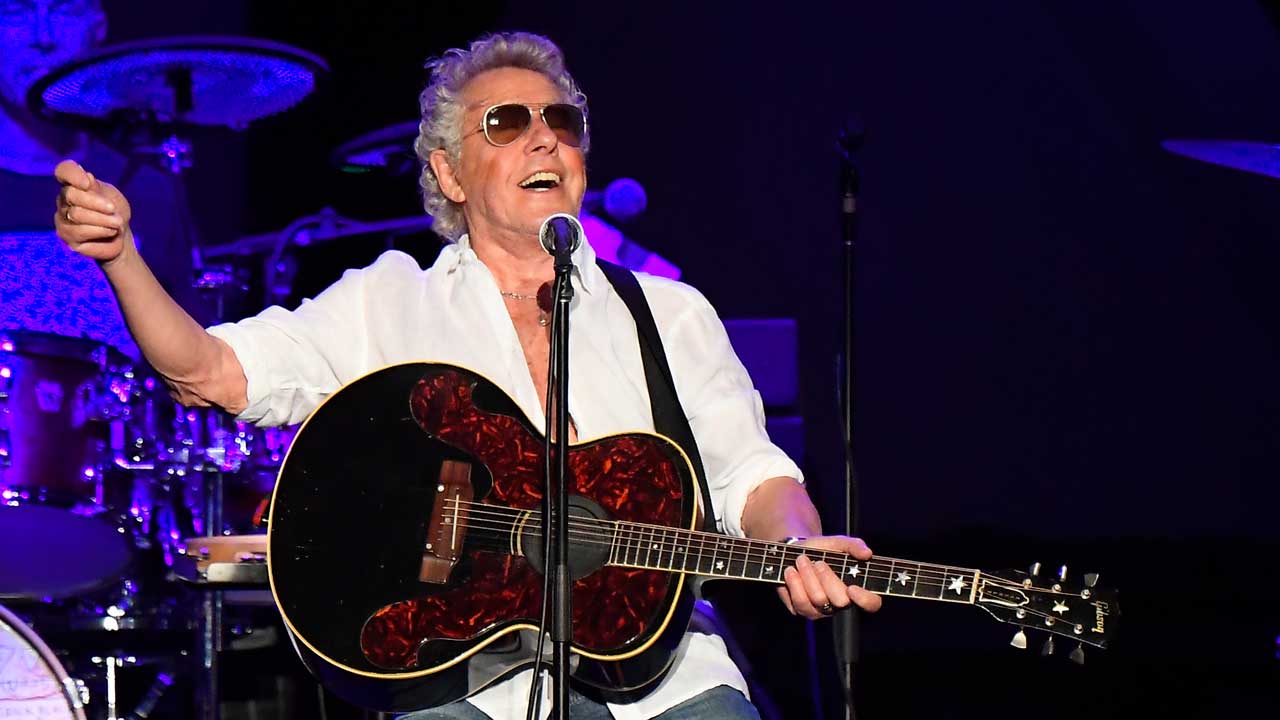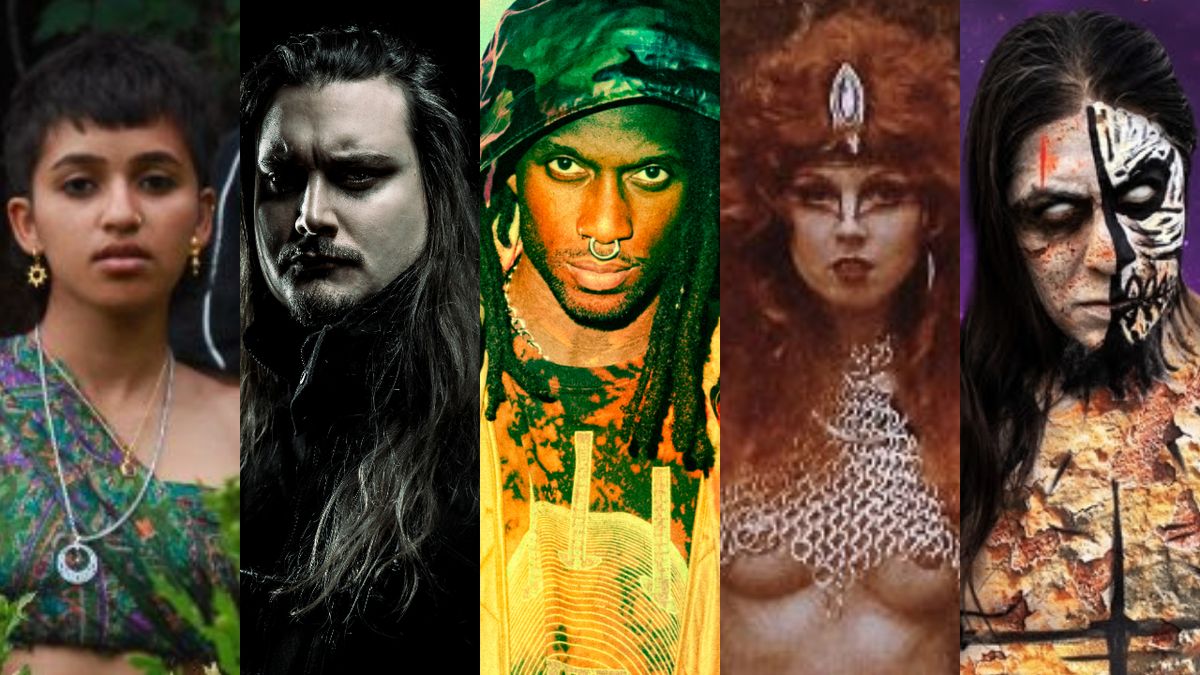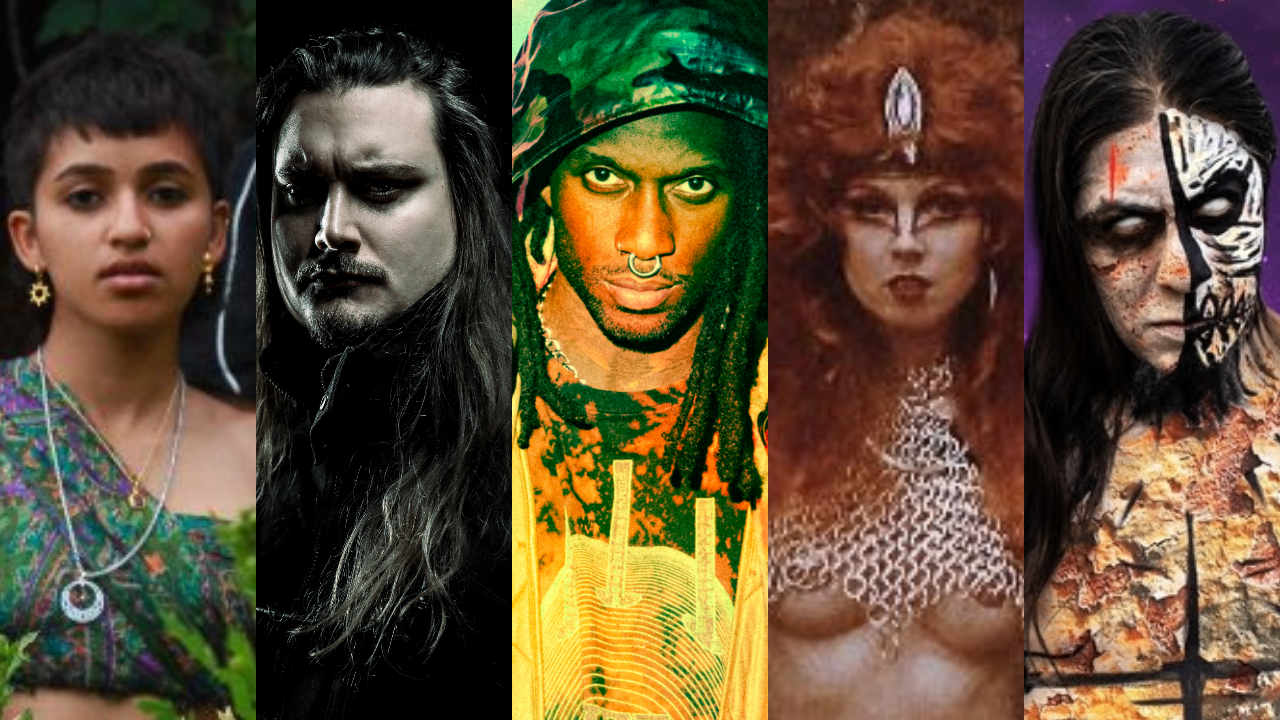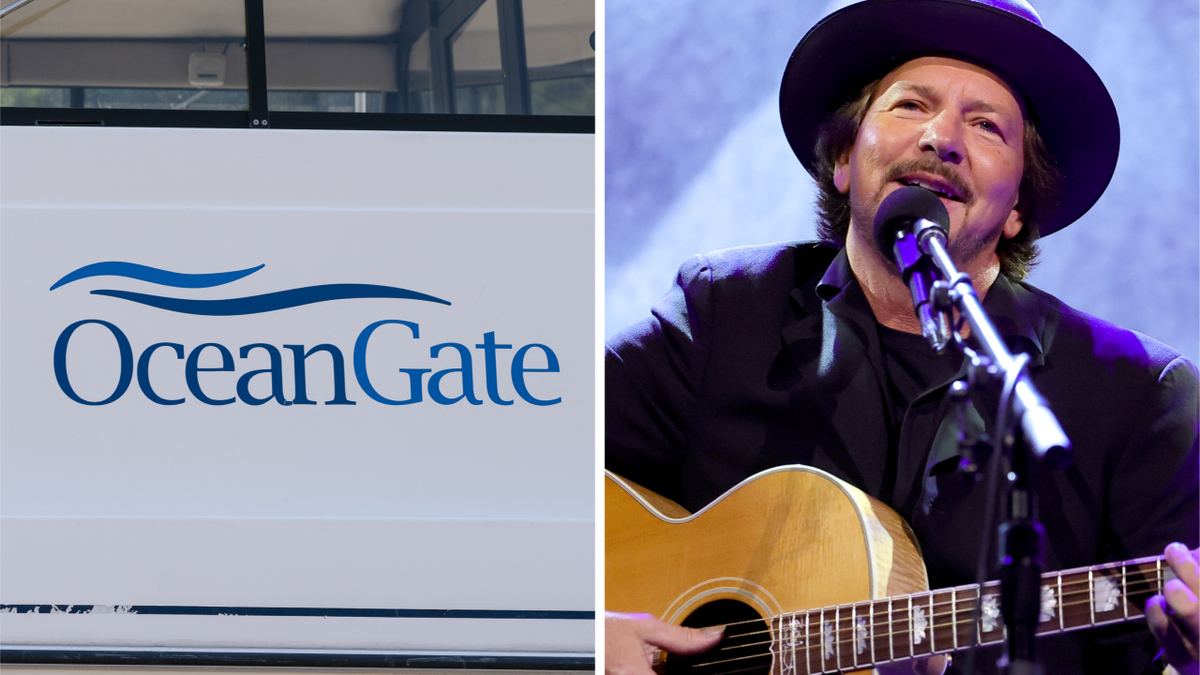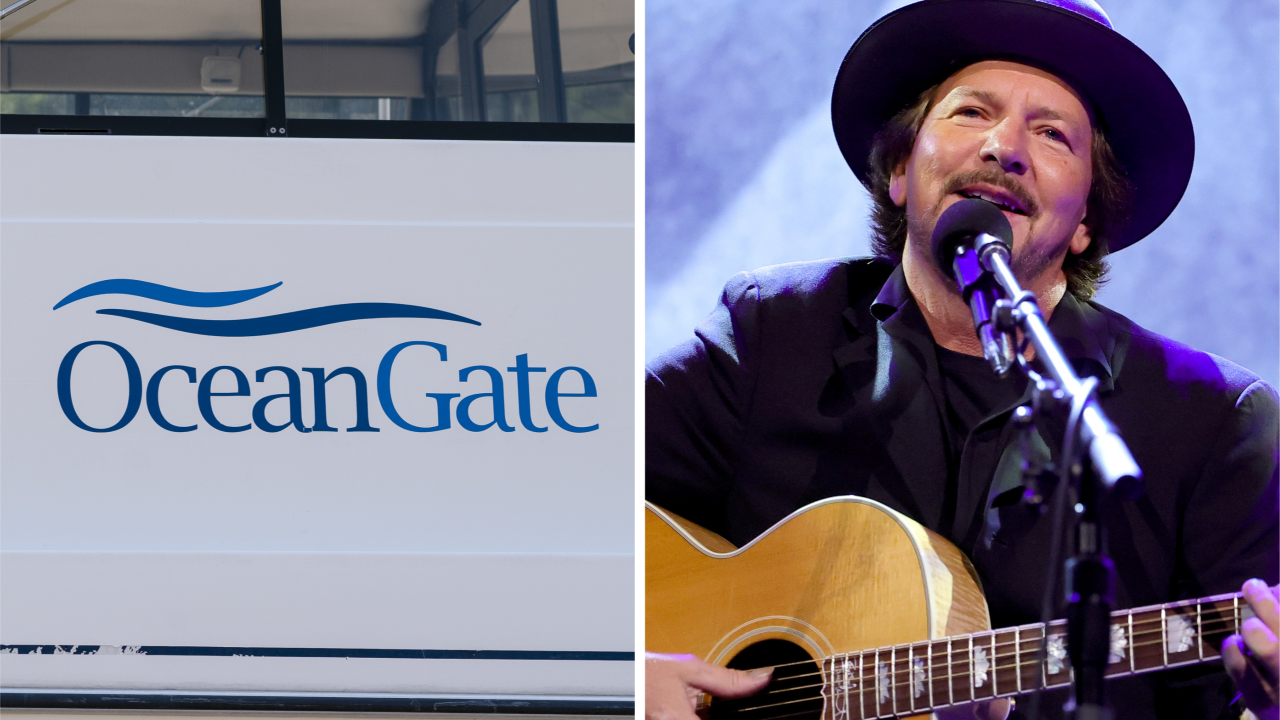
Feature Photo: astrocoz, CC BY-SA 2.0
Emerging from the sun-soaked streets of Los Angeles in 1999, Rooney carved out their place in the early 2000s power-pop revival movement with their blend of California rock aesthetics and British Invasion influences. The band, initially formed by Robert Schwartzman while he was still attending Calabasas High School, released their self-titled debut album in 2003 under Geffen Records, which spawned hits like “I’m Shakin’” and “Blueside,” and featured prominently on the popular television show “The O.C.” Throughout their career, Rooney has released five studio albums: “Rooney” (2003), “Calling the World” (2007), “Eureka” (2010), “Washed Away” (2016), and “El Cortez” (2019), navigating through various lineup changes while maintaining their distinctive sound.
Since their inception, Rooney has experienced significant membership changes, with Robert Schwartzman remaining the only constant member and creative force behind the band. After achieving moderate commercial success in the mid-2000s, including opening slots for bands like The Strokes and The Vines, Rooney went on hiatus from 2010 to 2016, during which Schwartzman pursued solo projects and film endeavors. Upon returning in 2016, Schwartzman reconfigured Rooney as essentially a solo project with rotating live musicians, marking a significant shift from the band’s original five-piece lineup.
Throughout their existence, Rooney has maintained a dedicated fan base despite never achieving mainstream superstardom, with their music featured in numerous films and television shows. Their highest-charting single, “When Did Your Heart Go Missing?” from their second album “Calling the World,” reached #27 on Billboard’s Hot Modern Rock Tracks chart in 2007. The band has toured extensively across North America and internationally, performing at festivals like South by Southwest and Lollapalooza, though they have yet to receive major music award nominations. Despite various challenges and transformations, Rooney has endured as a notable fixture in the indie rock landscape, with Schwartzman continuing to release music under the band’s name.
Robert Schwartzman
Robert Schwartzman founded Rooney in 1999 and has remained the band’s frontman, lead vocalist, and primary songwriter throughout its entire existence. As the only consistent member of Rooney, Schwartzman’s vision and musical direction have defined the band’s sound across all five studio albums. He joined forces with his high school friends to form the band originally named “Ed Rooney” after the principal character in “Ferris Bueller’s Day Off,” later shortening it to simply “Rooney.” Schwartzman has played on every Rooney album, contributing lead vocals, rhythm guitar, and keyboard parts while serving as the principal songwriter. His distinctive vocal style and penchant for crafting catchy, retro-influenced power-pop hooks became the signature sound of the band. On the debut self-titled album, Schwartzman wrote hits like “I’m Shakin’” and “Blueside,” while on “Calling the World,” his composition “When Did Your Heart Go Missing?” became the band’s biggest commercial success. For 2010’s “Eureka,” he took on a more prominent production role alongside the songwriting duties.
After Rooney’s hiatus in 2010, Schwartzman reinvented the band in 2016 as essentially his solo project with rotating live musicians. For both “Washed Away” (2016) and “El Cortez” (2019), he served as producer, songwriter, and performed most of the instrumental parts, demonstrating his evolution as a complete artist. When Rooney returned to touring, Schwartzman assembled various touring lineups while maintaining creative control of the project. Throughout Rooney’s active periods, he has been the band’s spokesperson and public face, guiding its artistic direction through various lineup changes and industry shifts. His commitment to the band’s characteristic sound, even as musical trends changed around them, has provided continuity for fans despite the evolving roster of supporting musicians.
Outside of Rooney, Schwartzman has built a multifaceted career in entertainment. He released solo material under his own name, including the albums “Double Capricorn” (2011) and “Palo Alto” (2017). Schwartzman comes from the prominent Coppola family (his mother is Talia Shire and his uncle is Francis Ford Coppola), which helped facilitate his entry into filmmaking. He directed several feature films including “The Unicorn” (2018) and “The Argument” (2020), following his acting debut in “The Princess Diaries” (2001). In 2016, he founded Utopia, an independent film distribution company focused on supporting emerging filmmakers. Schwartzman also launched his own record label, California Dreamin’ Records, to release Rooney’s later material independently. His musical contributions have extended to film scoring, composing music for several independent productions including his own directorial works. Throughout these various endeavors, Schwartzman has maintained Rooney as an ongoing project, occasionally returning to it between his other creative pursuits.
Taylor Locke
Taylor Locke joined Rooney in 2000 as the lead guitarist, becoming one of the band’s original core members during their major label period. He remained with the group until their initial hiatus in 2010, contributing to three studio albums over approximately ten years. Locke was recruited by Robert Schwartzman while both were teenagers, and quickly established himself as an essential component of Rooney’s early sound. His guitar work featured prominently on Rooney’s self-titled debut album in 2003, where his melodic leads and power-pop riffs helped define tracks like “Blueside” and “I’m Shakin’.” On the band’s 2007 follow-up “Calling the World,” Locke’s guitar playing evolved with more complex arrangements and solos, particularly evident on songs like “When Did Your Heart Go Missing?” and “I Should’ve Been After You.” For their third album “Eureka” (2010), Locke’s contributions expanded to include backing vocals and co-writing credits on several tracks, showcasing his growth as a songwriter within the band context before their hiatus.
During his decade with Rooney, Locke toured extensively across North America, Europe, and Japan, helping to build the band’s reputation as a dynamic live act. His stage presence and guitar skills were integral to Rooney’s performances, including opening slots for major acts like Weezer and The Strokes. Behind the scenes, Locke participated in the band’s creative decisions during their major label period at Geffen Records, contributing to their transition to an independent release model for “Eureka.” When Rooney reunited in 2016, Locke was not included in the new lineup, as Schwartzman had reconfigured the band as primarily a solo project with rotating touring musicians. Despite not participating in the band’s later releases “Washed Away” (2016) and “El Cortez” (2019), Locke’s guitar work remains prominently associated with Rooney’s classic sound and their most commercially successful period.
After parting ways with Rooney, Locke pursued several significant musical projects. He formed his own band, Taylor Locke and the Roughs, releasing two albums that showcased his songwriting abilities outside of Rooney’s framework. Later, Locke joined the power-pop supergroup Sparks Go Wild alongside members of Phantom Planet and All-American Rejects. His solo career continued with the release of “Time Stands Still” (2015), a collection of songs reflecting his evolving artistic vision. Beyond his own projects, Locke became an in-demand session guitarist, performing and recording with artists like Gwen Stefani and Liam Gallagher. He also ventured into production work, operating a recording studio in Los Angeles where he has helped develop emerging artists. Locke’s technical guitar skills have been recognized in the music community, leading to endorsement deals with various guitar manufacturers and a reputation as a skilled instrumentalist. Throughout these post-Rooney endeavors, Locke has maintained that his time with the band was formative for his musical development while continuing to build his own identity as an artist.
Ned Brower
Ned Brower joined Rooney in 2000 as the band’s drummer and backing vocalist, becoming one of the original members during the group’s formation and major label years. He remained with Rooney until their hiatus in 2010, contributing to three studio albums over approximately a decade before departing when the band restructured. Brower’s precise drumming style and vocal harmonies became crucial components of Rooney’s power-pop sound, particularly evident on their self-titled debut album in 2003. On this first record, his steady backbeat and complementary backing vocals supported hit songs like “I’m Shakin’” and “Blueside,” helping establish the band’s signature sound. For 2007’s “Calling the World,” Brower’s drumming took on more complex patterns and fills, while his vocal contributions became more prominent, particularly on tracks like “When Did Your Heart Go Missing?” and “I Should’ve Been After You.” On “Eureka” (2010), Brower’s percussion work displayed further versatility as the band explored different stylistic directions before their hiatus.
Throughout his tenure with Rooney, Brower was an energetic live performer whose drumming provided the rhythmic foundation for the band’s concerts. He participated in extensive touring alongside his bandmates, including supporting slots for major acts like Weezer and The Strokes and appearances at festivals across North America. Brower’s harmonies were essential to replicating the band’s layered vocal sound in live settings, often singing while maintaining complex drum parts. His photogenic presence made him a fan favorite and contributed to the band’s visual appeal during their Geffen Records period. When Robert Schwartzman revived Rooney in 2016 as essentially a solo project with rotating musicians, Brower was not included in the new configuration. Though not involved in later Rooney releases “Washed Away” (2016) and “El Cortez” (2019), Brower’s drumming and vocals remain integral to the band’s most commercially successful period.
Beyond his work with Rooney, Brower has maintained an active career in entertainment. He pursued acting opportunities, appearing in television commercials and small roles in TV series and films. His most notable acting credit came in the hit medical drama “Grey’s Anatomy,” where he appeared in a recurring role. Brower has worked as a session drummer for various artists in the Los Angeles music scene, lending his skills to recording projects across different genres. He briefly joined The Young Veins, a band formed by former Panic! at the Disco members, showing his versatility in different musical contexts. Outside of performing, Brower has explored songwriting and production work, collaborating with emerging artists in the California indie rock scene. His experience in the music industry led to consulting work for music technology companies developing new instruments and recording equipment. Throughout these various endeavors, Brower has maintained connections to his former Rooney bandmates, occasionally participating in Los Angeles music scene events and collaborative projects.
Matthew Winter
Matthew Winter joined Rooney in 2002 as the bassist, becoming part of the band’s classic lineup shortly before they signed with Geffen Records. He remained with the group until their hiatus in 2010, contributing to three studio albums over approximately eight years of active membership. Winter’s arrival completed the quintet that would record Rooney’s self-titled debut album, where his melodic basslines provided the foundation for the band’s power-pop sound on tracks like “I’m Shakin’” and “Blueside.” His playing style, influenced by classic rock and new wave bassists, complemented the band’s retro-leaning aesthetic while maintaining modern production values. On 2007’s “Calling the World,” Winter’s bass work became more prominent in the mix, with more complex patterns supporting singles like “When Did Your Heart Go Missing?” and “I Should’ve Been After You.” For their third album “Eureka” (2010), Winter’s contributions evolved as the band explored a more diverse sound palette, showing his versatility as a bassist across different stylistic approaches before the band’s hiatus.
During his time with Rooney, Winter was an essential component of the band’s live performances, providing not only the low-end foundation but also backing vocals that enhanced their harmonic arrangements. He participated in extensive touring throughout North America, Europe, and Japan, helping build the band’s reputation for energetic live shows. Winter’s stage presence contributed to the visual dynamic of Rooney’s performances during their commercial peak in the mid-2000s. Behind the scenes, he was involved in the band’s promotional activities and music video appearances during their major label period. When Robert Schwartzman reconfigured Rooney as primarily a solo project with touring musicians in 2016, Winter was not included in the new lineup. Though not participating in later releases “Washed Away” (2016) and “El Cortez” (2019), his bass playing remains an integral part of the band’s most recognized recordings and commercially successful era.
Following his departure from Rooney, Winter has pursued various musical endeavors while maintaining a lower public profile than some of his former bandmates. He has worked as a session bassist in Los Angeles, contributing to recording projects across different genres and establishing himself as a versatile player in the studio environment. Winter briefly played with other bands in the California indie rock scene, showcasing his skills in different musical contexts outside of Rooney’s power-pop framework. He has explored production and engineering work, applying his experience from Rooney’s recording sessions to help develop other artists’ projects. Outside of music performance, Winter has been involved in instrument design, consulting with bass manufacturers on new models tailored to modern playing styles. His technical knowledge has also led to work in music education, occasionally teaching bass techniques and music theory to developing musicians. Throughout these varied pursuits, Winter has maintained ties to the Los Angeles music community while building a career that extends beyond his high-profile years with Rooney.
Louie Stephens
Louie Stephens joined Rooney in 2000 as the keyboardist and became an integral part of the band’s original lineup during their major label period. He remained with the group until their hiatus in 2010, contributing to three studio albums over approximately ten years of active membership. Stephens’ keyboard work, including piano, organ, and synthesizer parts, helped create the lush, melodic backdrop that defined Rooney’s retro-influenced power-pop sound. On the band’s self-titled debut album in 2003, his keyboard textures enhanced hit songs like “I’m Shakin’” and “Blueside,” providing countermelodies and harmonic support that balanced the guitar-driven arrangements. For their 2007 follow-up “Calling the World,” Stephens’ role expanded with more prominent keyboard parts, particularly on singles like “When Did Your Heart Go Missing?” where his synthesizer lines became a focal element of the song. On “Eureka” (2010), his contributions showcased greater diversity as the band explored different stylistic directions, incorporating vintage keyboard sounds and more experimental textures before their hiatus.
Throughout his tenure with Rooney, Stephens was crucial to translating the band’s layered studio sound to their live performances. His keyboard skills allowed the band to recreate the rich arrangements of their recordings on stage during extensive touring across North America and international dates. In addition to keyboards, Stephens occasionally contributed backing vocals and additional percussion in both studio recordings and live settings, demonstrating his versatility as a musician. He participated in the band’s visual presentation during their peak commercial period, appearing in music videos and promotional materials as part of Rooney’s image during their Geffen Records years. When Robert Schwartzman revived Rooney in 2016 as essentially a solo project with supporting musicians, Stephens was not included in the new configuration. Though not involved in later Rooney releases “Washed Away” (2016) and “El Cortez” (2019), his keyboard work remains essential to the band’s most commercially successful recordings.
Since his time with Rooney, Stephens has maintained an active career in music while keeping a relatively low public profile. He has worked as a session keyboardist for various artists in the Los Angeles music scene, contributing to recording projects across different genres. His technical abilities and knowledge of vintage keyboard instruments have made him sought after for both studio work and live performances requiring authentic retro sounds. Stephens has collaborated with other former members of prominent bands from the early 2000s scene, participating in various musical projects that reflect his roots in California power-pop. He has explored composition for film and television, applying his melodic sensibilities to soundtrack work and scoring opportunities. Outside of performance, Stephens has worked in music production, helping develop emerging artists and sharing his experience from Rooney’s recording processes. His expertise with keyboard technology has also led to consulting work with instrument manufacturers and music technology companies. Throughout these diverse activities, Stephens has built upon the foundation established during his years with Rooney while continuing to evolve as a musician.
Brandon Schwartzel
Brandon Schwartzel joined Rooney in 2016 as the bassist when Robert Schwartzman reactivated the band after their extended hiatus. He became part of the new lineup that toured in support of the album “Washed Away,” representing the band’s shift to a new configuration centered around Schwartzman. Schwartzel’s tenure with Rooney began approximately six years after the departure of the original members, marking a distinct second chapter in the band’s history. Unlike the original lineup where all members contributed to the recording process, Schwartzel primarily served as a touring musician, as Schwartzman had largely recorded the bass parts for “Washed Away” himself. However, Schwartzel’s live performances were essential to bringing the new material to audiences, alongside reinterpreting the band’s classic catalog during concert tours. His bass playing maintained the melodic foundation characteristic of Rooney’s sound while adapting to Schwartzman’s updated vision for the project. Schwartzel continued to perform with Rooney for the tour cycles supporting both “Washed Away” (2016) and “El Cortez” (2019), helping establish continuity as the band rebuilt its presence after their hiatus.
As part of the revamped Rooney touring lineup, Schwartzel participated in extensive North American tours that reintroduced the band to audiences after their years of inactivity. His stage presence contributed to the visual dynamic of the new incarnation of Rooney, helping bridge the gap between the band’s earlier era and its revival under Schwartzman’s direction. Though not heavily involved in the studio recording process for the band’s post-hiatus albums, Schwartzel’s live interpretations became an important part of how fans experienced Rooney’s music in concert settings. His adaptability allowed him to authentically perform both new material and the classic songs originally recorded by former bassist Matthew Winter. Schwartzel’s professionalism and technical skill made him a reliable touring member during a transitional period when Rooney was reestablishing itself in the music landscape. His involvement coincided with Rooney’s shift from major label backing to independent releases through Schwartzman’s California Dreamin’ Records, representing a new business model and approach for the project.
Beyond his work with Rooney, Schwartzel has maintained an active career as a professional bassist in various musical contexts. He is perhaps best known as a member of the hard rock band Fidlar, where his aggressive playing style contrasts with the more melodic approach required for Rooney. With Fidlar, Schwartzel has recorded several albums and toured extensively, building a reputation in the Los Angeles punk and garage rock scene. His ability to move between different musical styles demonstrates his versatility as a bassist and has made him a respected figure in the California indie music community. Schwartzel has also participated in session work for various recording projects, lending his bass skills to artists across different genres. His experience with both underground rock acts and more mainstream projects like Rooney has given him a broad perspective on the music industry. Throughout his career, Schwartzel has developed a distinctive playing style that incorporates elements from punk, classic rock, and power-pop, allowing him to adapt to different musical situations while maintaining his own voice as a bassist. His parallel work with multiple active bands showcases his dedication to live performance and his ability to contribute effectively to different musical environments.
Boaz Roberts
Boaz Roberts joined Rooney in 2016 as lead guitarist when Robert Schwartzman revived the band after their extended hiatus. He became an integral part of the new touring lineup that supported the album “Washed Away,” representing the band’s transition to a different configuration focused around Schwartzman as the central creative force. Roberts’ involvement with Rooney began approximately six years after the departure of original guitarist Taylor Locke, marking a significant new chapter in the band’s evolution. While Schwartzman had recorded most of the guitar parts for “Washed Away” himself, Roberts took on the crucial role of bringing these compositions to life in concert settings, as well as reinterpreting the band’s earlier material. His guitar playing maintained the melodic sensibility that had always characterized Rooney’s sound while adding his own stylistic elements to the band’s live performances. Roberts continued to tour with Rooney in support of both “Washed Away” (2016) and “El Cortez” (2019), establishing himself as a key figure in the band’s revitalized touring presence.
As lead guitarist in the post-hiatus incarnation of Rooney, Roberts faced the challenge of performing songs from across the band’s catalog, including material originally recorded by Taylor Locke that fans knew well. His technical skills allowed him to faithfully execute the signature guitar parts from Rooney’s hit songs while bringing a fresh energy to their live shows. During extensive touring throughout North America, Roberts helped reestablish Rooney’s reputation as an engaging live act after their years of inactivity. Though primarily a touring member rather than a studio contributor to the band’s post-hiatus albums, his interpretations became an important part of how fans experienced Rooney’s music in concert during this era. Roberts’ stage presence contributed to the visual dynamic of the revamped lineup, helping bridge the gap between the band’s earlier configuration and its revival under Schwartzman’s direction. His adaptability proved valuable during a period when Rooney was transitioning from their major label history to independent releases through Schwartzman’s California Dreamin’ Records.
Outside of his work with Rooney, Roberts has maintained an active career as a versatile guitarist across multiple projects. He has performed with various artists in the Los Angeles indie rock scene, establishing himself as a skilled player capable of adapting to different musical styles and contexts. Roberts has participated in studio session work, contributing guitar parts to recording projects spanning different genres and production approaches. His technical abilities and knowledge of various guitar techniques have made him sought after for both live performances and recording sessions requiring diverse playing styles. Beyond performing, Roberts has explored composition and production, developing his skills beyond his role as a touring guitarist. He has collaborated with other musicians from the California indie scene, participating in various side projects that showcase different aspects of his playing. Throughout these various musical endeavors, Roberts has continued to develop his own voice as a guitarist while maintaining the flexibility to contribute effectively to established projects like Rooney. His career demonstrates the modern reality for many professional musicians, balancing work with multiple bands and recording sessions while building a diverse portfolio of musical experiences.
Max Whipple
Max Whipple joined Rooney briefly as a keyboardist during their post-hiatus touring lineup in 2016, becoming part of the reconfigured band that supported the album “Washed Away.” He was recruited by Robert Schwartzman as Rooney transitioned to a new chapter with an entirely fresh lineup of supporting musicians. Whipple’s tenure with the band was relatively short compared to other members, primarily contributing to live performances rather than studio recordings. As a touring keyboardist, Whipple faced the challenge of interpreting keyboard parts originally performed by Louie Stephens on earlier Rooney albums, as well as the new material that Schwartzman had largely recorded himself for “Washed Away.” His keyboard work helped recreate the lush, melodic textures that had always been an important component of Rooney’s power-pop sound in a live setting. Whipple participated in select tours and performances during this period, helping reintroduce the band to audiences after their extended hiatus. Though his association with Rooney was shorter than many other members, Whipple contributed to an important transitional period as the band established its new identity under Schwartzman’s direction.
During his time with the post-hiatus version of Rooney, Whipple’s keyboard skills helped translate the layered studio arrangements of both classic and new Rooney songs to the concert stage. His ability to recreate various keyboard sounds, from piano and organ to synthesizer textures, allowed the live band to capture the full spectrum of Rooney’s recorded material. Whipple’s adaptability proved valuable as he navigated between performing new compositions from “Washed Away” and faithfully reproducing the familiar keyboard parts from the band’s earlier hits. Though not heavily involved in the studio recording process, his live interpretations became part of how fans experienced Rooney’s music during this period of the band’s history. Whipple’s contributions helped maintain the melodic richness that had always characterized Rooney’s sound, even as the band underwent significant personnel changes. As part of the short-lived 2016 touring configuration, he participated in reestablishing Rooney’s presence in the independent music scene after their years of inactivity.
Beyond his brief association with Rooney, Whipple has pursued a diverse career in music across multiple projects and roles. He has worked as a session keyboardist for various artists in the Los Angeles music scene, lending his talents to recording projects spanning different genres. Whipple has performed with other indie rock bands, demonstrating his versatility as a musician comfortable in various stylistic contexts. His keyboard skills have made him sought after for both studio work and live performances requiring a range of piano, organ, and synthesizer sounds. Outside of performing, Whipple has explored composition and production, developing his creative voice beyond his supporting role as a touring musician. He has collaborated with various artists in the California independent music community, contributing to numerous recording projects while building his reputation as a skilled keyboardist. Throughout these diverse musical endeavors, Whipple has continued to expand his repertoire and technical abilities, establishing himself as a respected professional in the Los Angeles music ecosystem. His career path reflects the reality for many contemporary musicians who move between different projects and roles rather than remaining with a single band for extended periods.
Brian Stead
Brian Stead joined Rooney in 2019 as a guitarist when Robert Schwartzman assembled a new touring lineup to support the album “El Cortez.” He became part of the ever-evolving configuration of musicians that have supported Schwartzman in Rooney’s post-hiatus incarnation. Stead’s addition to the band came approximately three years after Schwartzman had revived the Rooney name, representing a further evolution in the project’s touring personnel. Unlike the original band members who contributed significantly to the recording process, Stead primarily served as a live performer interpreting material that Schwartzman had largely recorded himself in the studio. His guitar work complemented Schwartzman’s vision for Rooney’s contemporary sound while maintaining connections to the band’s power-pop roots. Stead participated in concert tours supporting “El Cortez,” helping bring these new compositions to audiences alongside performing reworked versions of classic Rooney material. His adaptability allowed him to authentically represent both the latest direction of the band and the familiar hits from earlier in their catalog.
As part of Rooney’s touring lineup for the “El Cortez” cycle, Stead contributed to the band’s live performances with guitar work that balanced respect for the established Rooney sound with fresh energy. His stage presence helped define the visual dynamic of this latest configuration of the band, representing the continuing evolution of Rooney under Schwartzman’s direction. Though not heavily involved in the studio recording process for “El Cortez,” Stead’s live interpretations became an important part of how fans experienced the album in concert settings. His technical abilities allowed him to faithfully execute guitar parts from across Rooney’s extensive catalog, spanning material recorded by different lineups over nearly two decades. Stead’s participation coincided with Rooney’s continued operation as an independent project through Schwartzman’s California Dreamin’ Records, reflecting the band’s mature business model far removed from their major label beginnings. As one of the most recent additions to Rooney’s ever-changing supporting cast, he represents the project’s nature as an evolving vehicle for Schwartzman’s musical vision adapted for live performance by different collaborators over time.
Outside of his work with Rooney, Stead has maintained an active career across various musical projects and roles. He has performed with different artists in the Los Angeles indie music scene, establishing himself as a versatile guitarist capable of adapting to different stylistic contexts. Stead has contributed to recording sessions as a studio musician, lending his guitar skills to projects across various genres. His technical abilities and familiarity with different playing techniques have made him a valuable collaborator for both live performances and studio work. Beyond performing, Stead has explored composition and production, developing his creative voice alongside his supporting role as a touring musician. He has participated in various collaborative projects within the California independent music community, building connections with other established and emerging artists. Throughout these diverse musical endeavors, Stead has continued to refine his craft while maintaining the flexibility required of contemporary professional musicians who typically balance multiple projects simultaneously. His career demonstrates the modern reality for many working musicians who contribute to various bands and recording sessions rather than maintaining exclusive long-term affiliations with a single project.
Read More: Artists’ Interviews Directory At ClassicRockHistory.com
Read More: Classic Rock Bands List And Directory
Complete List Of Rooney Band Members article published on ClassicRockHistory.com© 2025




